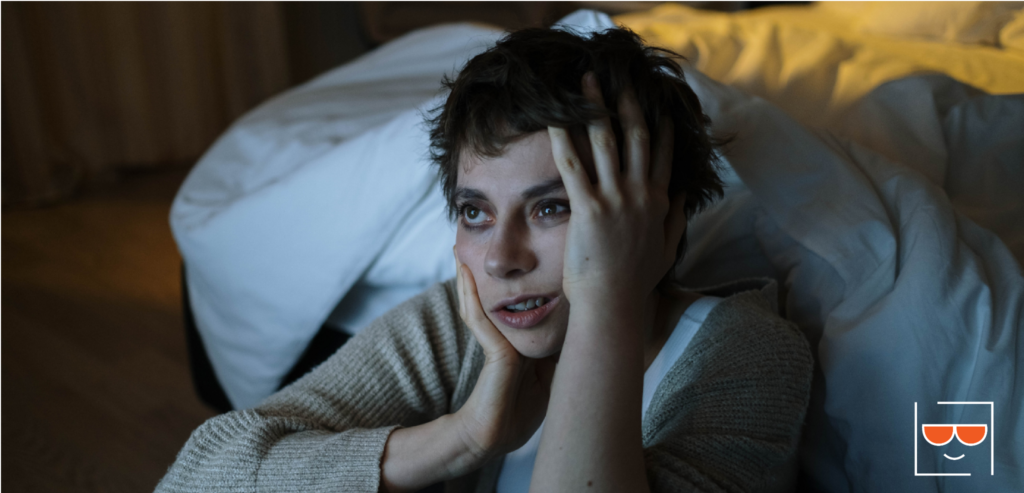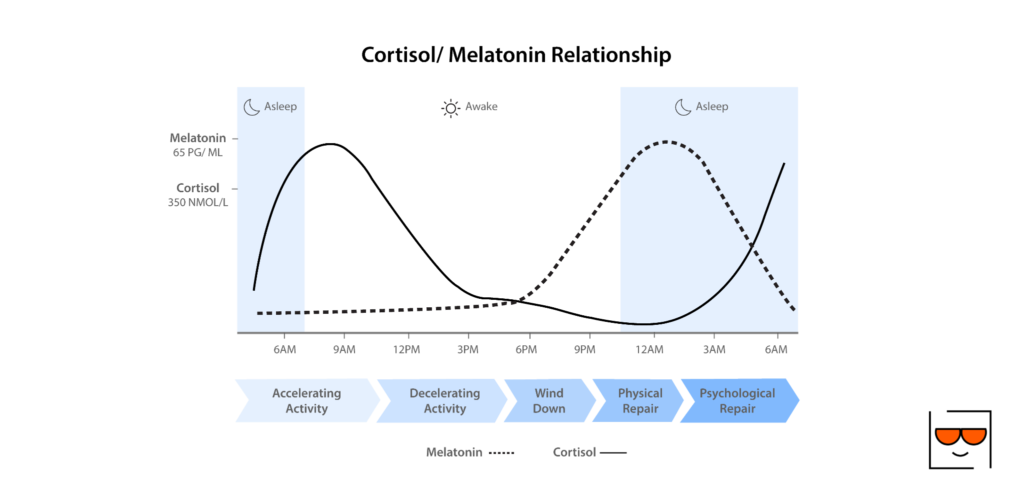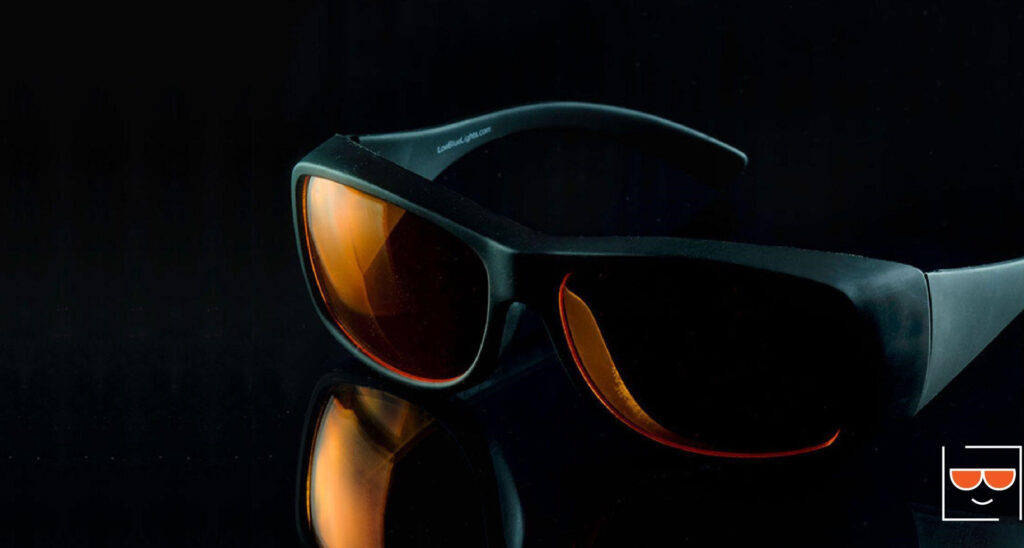
The abrupt increase in mood disorders has become increasingly more prevalent. According to a study in 2016 by the American Academy of Pediatrics, there was a 37% increase in mood disorder symptoms among young people over a nine-year duration. But what is causing the sudden increase?
From electronics and social media to diet and exercise- the changes in our environment and mental health over the past decade are undeniable. However, while there is endless information about the effects of diet and exercise on our mental health, scientists are only beginning to understand the link between blue light and mental health.
The Link Between Light And Mental Health
Light affects our mood both directly and indirectly. For example, when our eyes directly respond to detecting light, certain regions in the brain controlling emotion are affected, such as the feeling of joy on a sunny day.
However, it is the indirect connection light has on specific systems believed to contribute to our long-term mental health. For example, mood disorders indirectly connected to light include disruption of sleep, hormone secretion, and the nervous system’s ability to respond to changes.
Blue Light and Circadian Rhythm
Circadian rhythm is the body’s biological 24-hour clock, running in the background to carry out essential functions and processes. One of the crucial functions of the circadian rhythm includes the sleep-wake cycle, controlling behavior, hormone secretion, and cellular function.
Circadian Rhythm and Hormonal Balance
The circadian rhythm helps regulate the production of hormones to maintain a physical and mental balance. When we don’t get enough quality sleep or our circadian rhythms are disrupted, our mood, judgment, stress levels, and decision-making abilities can be impacted.
Studies have found that increased screen time and light during the evening hours can cause depressive symptoms. This is because nighttime exposure to blue light affects the circadian rhythm by suppressing melatonin production. Melatonin is a sleep-inducing hormone that peaks at night to allow for a restful night’s sleep and regulate the circadian sleep phase.
Problems occur when sleep is disturbed because your body can no longer complete an entire circadian cycle. As the circadian system becomes suppressed, it begins to present problems such as mood disturbances, stress, and a constant state of alert, generating mental and physical fatigue.
Additionally, a lack of sleep will affect the entire circadian rhythm, the secretion of all hormones will be altered.
Can Blue Light Affect My Hormones?
We have become accustomed to the constant exposure to natural and artificial blue light through the sun, lightbulbs, and screen-based devices. Prolonged exposure and the effects of blue light have led to many avenues of research, including its impact on the endocrine system. The endocrine system is responsible for producing and regulating the hormones within the human body.

Overexposure to blue light can cause the stress hormones cortisol and adrenaline to become abnormally elevated, causing problems to surface. The stress hormones can manifest as physical and mental imbalances, ultimately leading to disorders such as anxiety or depression.
Hormonal Alteration and Anxiety
Anxiety is a feeling of fear or worry towards a situation, person, or object that can often create a physical change in the body, such as increased blood pressure or heart rate. Anxiety disorder is one of the most common mental disorders, with 10 to 25% of the population in the United States suffering from anxiety.
Continuous exposure to blue light and sleep disturbances such as insomnia is related to anxiety disorder. For example, studies have found that 24 to 36% of individuals with insomnia suffer from anxiety.
This means that anxiety can occur by simply not getting enough quality sleep. In fact, a lack of sleep will increase the secretion of the hormones adrenaline and cortisol, which prepare us for action and increase the anxiety level, further creating a vicious cycle.
Hormonal Alteration and Depression
Depression is a persistent feeling of heightened sadness and loss of interest. Those with depression are often affected by how they feel, think, and behave, leading to various emotional and physical problems.
The relationship between sleep and depression is closely linked, with nearly three-quarters of individuals with depression also suffering from sleep disturbances.
While blue light correlates with the suppression of the sleep hormone melatonin, it can also affect the production of cortisol. Cortisol is the body’s primary stress hormone responsible for regulating mood, motivation, and fear. The constant and altered cortisol secretion can cause chronic stress, a common cause of insomnia, creating another repetitive cycle. Excessive artificial blue light prompts a low quality of sleep, poor sleep leads to stress, and stress results in insomnia and depression, continuing in a perpetuated cycle.
How to Regulate Your Circadian Rhythm and Hormone Levels
Consistent exposure to blue light can indirectly affect our mental health, but how can we avoid putting ourselves at risk? The answer is very simple, decrease the exposure to blue light in the evening hours.
Once the sun sets, even the slightest exposure to blue light will signal the brain to continue suppressing melatonin production. So, instead of winding down and relaxing in the evening, our bodies will continue in a state of wakefulness, leaving you feeling anxious and alert. Therefore, blue light must be omitted in the evening to allow optimal levels of the sleep hormone melatonin, which is responsible for quality sleep. Quality sleep is vital for regulating our circadian rhythm and the production of hormones for good mental health. The lack of sleep will eventually lead to anxiety and depression disorders.
LowBlueLights Blue Light Blocking Glasses

They are most effective when worn a few hours before bed while sleeping in complete darkness or in tandem with the amber night light. This timeframe will allow the body enough time for melatonin production to encourage quality sleep.
Ready to Improve Your Mental Health with Blue Light Blocking Glasses?
Start Blocking Blue Light Today!

 10% off Blue-Free Motion Sensing Light with Coupon Code BLUEMOTION10
10% off Blue-Free Motion Sensing Light with Coupon Code BLUEMOTION10